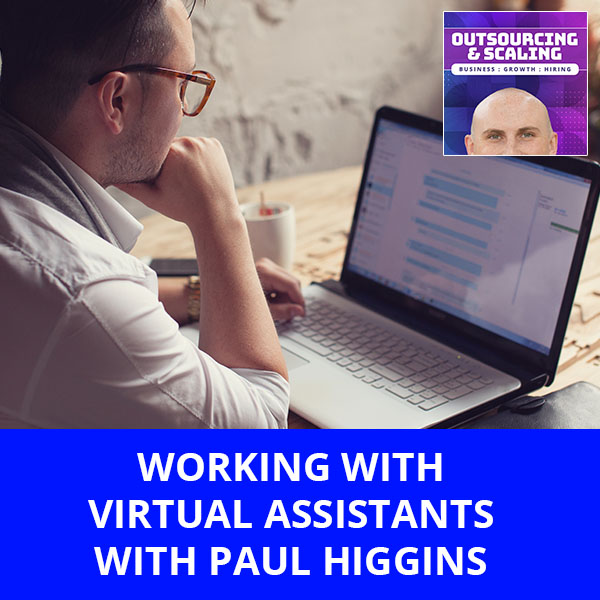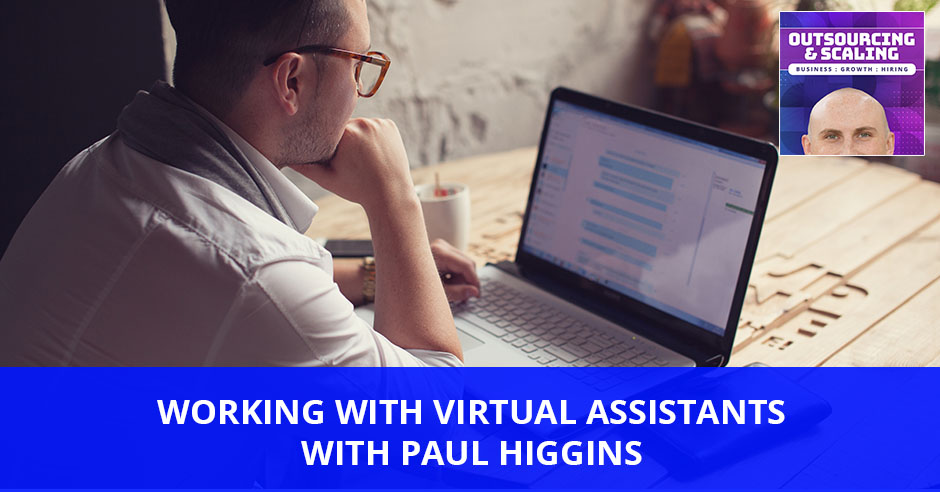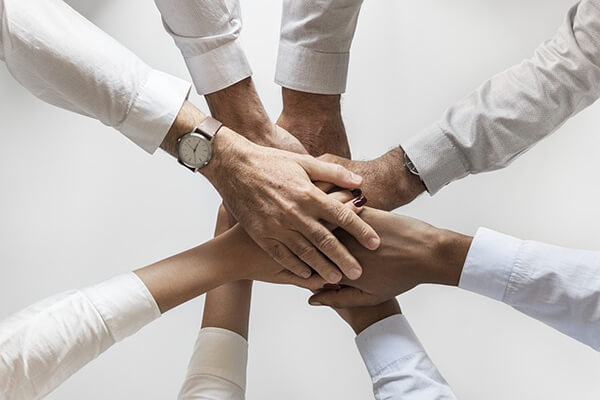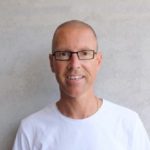


—
Listen to the podcast here:
[smart_track_player url=”https://www.podetize.com/statsapi/www.podetize.com/wp-content/uploads/fileuploads/11-5b145ef137b51b3d1af0633e9305c43d/04/2019/d2435ab95b7059acdfc6215988ce68c7.mp3″ title=”Working With Virtual Assistants with Paul Higgins” artist=”Nathan Hirsch” image=”https://freeup.net/wp-content/uploads/2019/04/OAS.png” ]
Download the audio file here.
Working With Virtual Assistants with Paul Higgins
I’m here with Paul Higgins. He is a community owner, a podcaster and Tech Evangelist. He has over 26 years of rich business experience at Coca-Cola and his own startups. He’s mentored over hundreds of former employees and now entrepreneurs to live with freedom. He has achieved all this while living with polycystic kidney disease, which I definitely want to hear a little bit about because it seems it’s something you overcome. Paul’s best friend donated him a kidney in February in 2019 and they’re both doing very well. While not managing his community and health, he loves spending time with teenage children playing sports and has an infectious personality and always about giving first. Paul, how are you doing?
I’m great, Nathan and yourself?
I’m doing great. Let’s start with overcoming some things because I feel every entrepreneur they have to overcome different hurdles and problem solve, but you more than others. Can you take us back a little bit of what that process of getting a new kidney was like and how you were able to not only physically overcome it but also mentally?
At eighteen, my mom was in a meet 40 and she had a massive heart attack. We nearly lost her. She died on the operating table and then I backtraced how it happened. It happened because she had a kidney disease and it’s called polycystic kidney disease. If you think of an American football, that’s what my kidneys are the size of. They’re quite large and you can’t stop the growth. My grandfather died of it. His mother died of it. It’s not known in the family because in the old days they’d say heart attack. It wasn’t a heart attack. It was kidney failure that caused the heart attack. Long and short, I’ve got tested at eighteen. I’ve been o blood pressure medication because it was through the roof then.
I live life normally but in the back of my mind I was thinking, “At some point, I’m going to have to do something about this.” Fast forward 2011 my specialist said, “You can either keep doing what you’re doing, work for Coca-Cola, travel the world, be a high paid executive and your kidneys will fail in twelve months or you can do something different.” I said, “I’ll do something different.” She said, “I’ll give you two years.” I pushed it out to eight. In 2019, I had the kidney transplant. My best mate gave me his kidney, which is amazing and it’s a perfect match. The kidney is awesome. He’s great. I’m great. It couldn’t be a better story, but it’s been a bit of a journey through it all.
I can’t even imagine. How did you handle that work-life balance while you’re going through all that? I feel everyone handles that in a different way. Was that on pause until you dealt with the personal stuff? Where you’re doing both at once? Did you leave it over to someone else running it? How did that work?
What we think one minute isn’t always what we think in two hours.
I always recommend if you’re going to leave corporate you might as well set up your dream job. What I did is said, “I want a job that I can do from a hospital bed because I’m going to spend a lot of time in a hospital.” I build a business based on that. My immune system is severely depressed. I can’t go outside, see people if I pick up a cold. I’ve been back in the hospital a couple of times already because of something with an infection. This is what I do. I talk to great people like you all around the world from my home. In the hospital, four hours after my transplant, I was back on my laptop and doing some work. I’ve got a team in the Philippines. I love freelancers. I’ve got freelancers all over the world. I’m using your great company as well. That makes it so much easier that I can use my brain and physically be anywhere.
We can transition a little bit. Let’s talk about hiring people in the Philippines. What was your first experience doing that and what have you learned along the way?
I always had an executive assistant in corporate. I was very fortunate. When I left I thought I’d got all these stuff that I’m doing, working more hours than when I was in corporate. I’ve got to get rid of some of this stuff. I hired a local VA, to begin with. Then I listened to a podcast and they talked about the Philippines and VAs because I love to double down on things. I went and researched it like crazy. I thought there’s no other way to experience this but to get on a plane and go there. I interviewed ten companies. I went over there for a week. I did all my research and started hiring two people in two different companies. Years later, I had 30 virtual assistants working for me. It was a dream.
Let’s talk about communication because I feel that’s where most people struggle. I know when I hire people in the Philippines for the first time and I hate to put everyone in one basket, but I personally struggled with that communication. What mistakes do you see people make or what mistakes did you make along the way and how do you make sure that you’re communicating effectively going forward?
If you immerse yourself in the culture, you understand it. The Filipinos are incredibly loyal and they’re incredibly hierarchical. It’s a society where if you’re king in the family and particularly if you’re a male, you rule the roost. Everyone else follows a path. I was used to working with some of the top executives in the world, where they gave you their thoughts. It is normally the other way around. You had to try to water it down a bit whereas over there they wouldn’t say anything. I’d run standup meetings, “What are we going to do here?” Try to engage and try to involve them. There were crickets and I wasn’t getting the best out of them. What I quickly realized is it’s best to have a spokesperson. What I’ll do is get them to go and talk in their native language Tagalog. Go over, talk it, discuss it and then get one person to come back and represent the view of the group to me. I found that little things that made a massive difference.
They’ll say yes to a lot of things because I don’t want to disappoint you and I want to help you. You’re sitting there thinking great. They are saying yes. I’ll leave it. What I always say to people is give someone a task. I do the “I, we, you.” I’ll do it first, we’ll do it together and then you train me. You know that they have absorbed the task properly. That’s the first thing. The second thing is, don’t give them a project and then come back and check it in a week’s time because a week’s too late. Start it and in two hours say, “Let’s debrief.” You yourself might change what you wanted. As entrepreneurs we’re creative people. What we think one minute isn’t always what we think in two hours. You’d get a chance to adapt but also, they get a chance to show whether they’re on track. You don’t lose a week or you don’t lose a day and then working on something you’d say, “That’s not what I meant.”

It’s all about valuing your time too. The last thing you want to do is get farther down the line and then realize this person is not the right fit. One of my pet peeves is direct responses. I need to know if something, I need straight answers. Sometimes you find yourself going off in different directions. Let’s figure out what the root cause of the issue right here. I hate putting everyone in that everyone’s the same. I worked with some awesome team leaders, but that’s definitely something that I’ve found. Do you only work with people in the Philippines or you work with people in the US too?
I’ve got clients around the world. We’ve got providers. I divest in my VA business because of my health. I was a firm believer if I couldn’t travel there and I couldn’t see my people, it wasn’t going to work. I divested that. What I use are providers. Providers like your platform and also some agencies. We’ve got people all over the world. My favorite spots are the Philippines and Colombia, which is South America that goes beautifully into the US time zone and South Africa into the UK. Those are my preferred ones. Labor arbitrage is there, you might as well take advantage of it. I rarely get people from in-country. I normally get people from countries that have got a lower standard of living. I’m giving them more opportunities because I think we’re so lucky to live in countries like Australia and the US. I like the fact that I’m giving back, helping people live at home, look after their family and have a great career. That’s why normally pick those three areas.
Let’s talk about someone going from the mindset of an employee to starting a business. I know from our side, I’ve seen many freelancers that go from that corporate world. They’re sick of it. They want flexibility. How do you help people do that? Do you find people that it’s what they want or sometimes do you show them what it’s like on the other side and then they want to do it? How does that work?
It is a combination of both. It’s never linear and it’s never the same for everybody. Everyone’s got a different personality. Everyone’s got a different history and everyone’s got a different goal. Most people I say, “What do you really want to achieve out of this,” because the money only fuels the lifestyle. What is lifestyle? I mentioned it before, set that up first. I have seen so many people worry so much about what they’re going to do. Once you do what, what’s the why? Let’s start with the why first, then work out what. The other thing is it’s going to pivot. I started coaching corporates when I left as an executive coach. It’s very different than what I do. It will pivot over time. Don’t get too hung up on that. What I also recommend is don’t reinvent the wheel.
I’ve seen so many people because they are so smart in corporate and they got high intelligence. They think, “I’ll figure this out by myself.” You can, but it may take longer. I recommend, joining a community or getting some help so you can fast track your learnings. It’s no different in corporate. I always call it the One Plus Model where it’s you and plus an expert. Coke was bringing and getting the best people in the world to help. There are some brilliant freelancers out there who do something every day. Why not tap into them? Why develop your own website when someone else can do it? Why do your own design when you can get someone else that’s highly skilled at it? Tapping into the community and tapping into the experts that can help you, is something that can make a difference when you leave.
Where do you think that most entrepreneurs struggle?
Money only fuels the lifestyle.
They struggle with mindset. It’s a massive change going out and working for yourself. In corporate in particular, you’ve got lots of rules so to speak. Some of the reason why people leave is because of the rules. It’s too rigid. When you’re your own entrepreneur, you’ve got complete freedom. You can do anything. What comes with that is that people throw the baby out with the bath water sometimes. They become too undisciplined and it becomes a bit of a free for all. That’s definitely one. The other one is around money. It’s important to have a conversation with your partner as to what you’re going to contribute.
Always say it’s going to take twice as long and you’re going to own half as much so be prepared for that. I promised my wife a number that was ridiculous. There’s no way I could ever get that number. It was a noose around my neck for the first couple of years because we always had this argument about this fictitious number, which never sticks in the first place. That’s a second. The third is following a proven framework. If people have already done it and people have done it successfully, why not copy that? Don’t think that you’ve got to come up and reinvent the wheel yourself.
Before that, you said hiring service providers, get someone to build your website, do that graphic design project that you’re not good at. You’ve obviously hired a lot of people. What do you look for when you’re hiring someone?
I would go with personality first and skills. I know that’s a bit of a cliché, but everyone that I always hire has to do a two-minute video. I want to know about them. I asked them some personal questions and I want to know about them. What kind of person are they? At Build Live Give, we’ve got high values. It’s honesty, integrity and trust. I want to see that. What are they passionate about outside of work? What drives them outside of work? That’s the first thing. Then the next is we go through competencies through an interview. They are competency-based. I want to see examples. I don’t want to see the bland, that’s a robot, I’m going to press a button and answer it.
I want to ask some questions that are off-script that they haven’t had before. We’ve got some brilliant questions that we’ve refined over time. I’ve hired thousands of people at Coca-Cola. I have taken those and my time with the freelancers to improve that. The third thing is to make sure you go and do some practical skills. Give them a week trial where they do the job and see if they love it. It’s got to work both ways. It’s not about what you want on them, it’s are you the right fit for them? That’s important. I’ve got caught out so many times where, someone’s interviewed great and then go to do the job and they didn’t know how to do it. They said all the right things, but they couldn’t deliver on it.
The best freelancers, they’re interviewing you while you’re interviewing them. They want to find out that it’s the right fit for them, that they can handle that. No one wants to get a job to get it. Freelancers, they’re freelancing because that’s what they want to do. They love the flexibility. They want to work on things that they’re good at and they’re passionate about. The best ones are interviewing you while you interview them. Is there anything that you miss about corporate?

I definitely miss my colleagues. I miss that mental stimulus where you’ve got a difficult challenge, your colleagues and you are working through it and you tap into some of the best experts. Sometimes it’s a bit of a shock when I walk into a meeting or I’ll walk into some somewhere and I haven’t got that brand behind me. They look and treat you differently. I was selling something and someone hung up on me. No one had ever hung up on me if I was a director of Coca-Cola. It’s not ego, I want to help them and they’ve shut the door on me. Those are some of the things that I miss around corporate. Let’s not forget the business class travel. That is definitely one thing I miss.
Paul, thank you so much for coming on. Where can people find out more about you?
They can find out more about me at BuildLiveGive.com. If they are interested to find out more and grab a quick chat with me, I can work out where they’re at and see I can help them. They can go to BLGMeeting.com.
Paul, thanks so much for coming on.
Thanks, Nathan. It’s great to be here.
Important Links:
- Paul Higgins
- BuildLiveGive.com
- BLGMeeting.com
About Paul Higgins
 Paul Higgins is a Community owner, podcaster and Tech Evangelist. He has over 26 years of rich business experience at Coca-Cola and his own startups. He has mentored 100’s of former employees now entrepreneurs, to live with freedom.
Paul Higgins is a Community owner, podcaster and Tech Evangelist. He has over 26 years of rich business experience at Coca-Cola and his own startups. He has mentored 100’s of former employees now entrepreneurs, to live with freedom.
He has achieved all of this whilst living with Polycystic Kidney Disease (PKD). Paul’s best friend donated him a kidney in February 2019 and they are both doing well.
Whilst not managing his community and health, Paul loves to spend time with his teenage children and play sport. Paul has an infectious personality and is always giving first.
